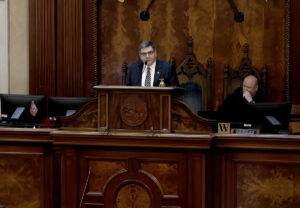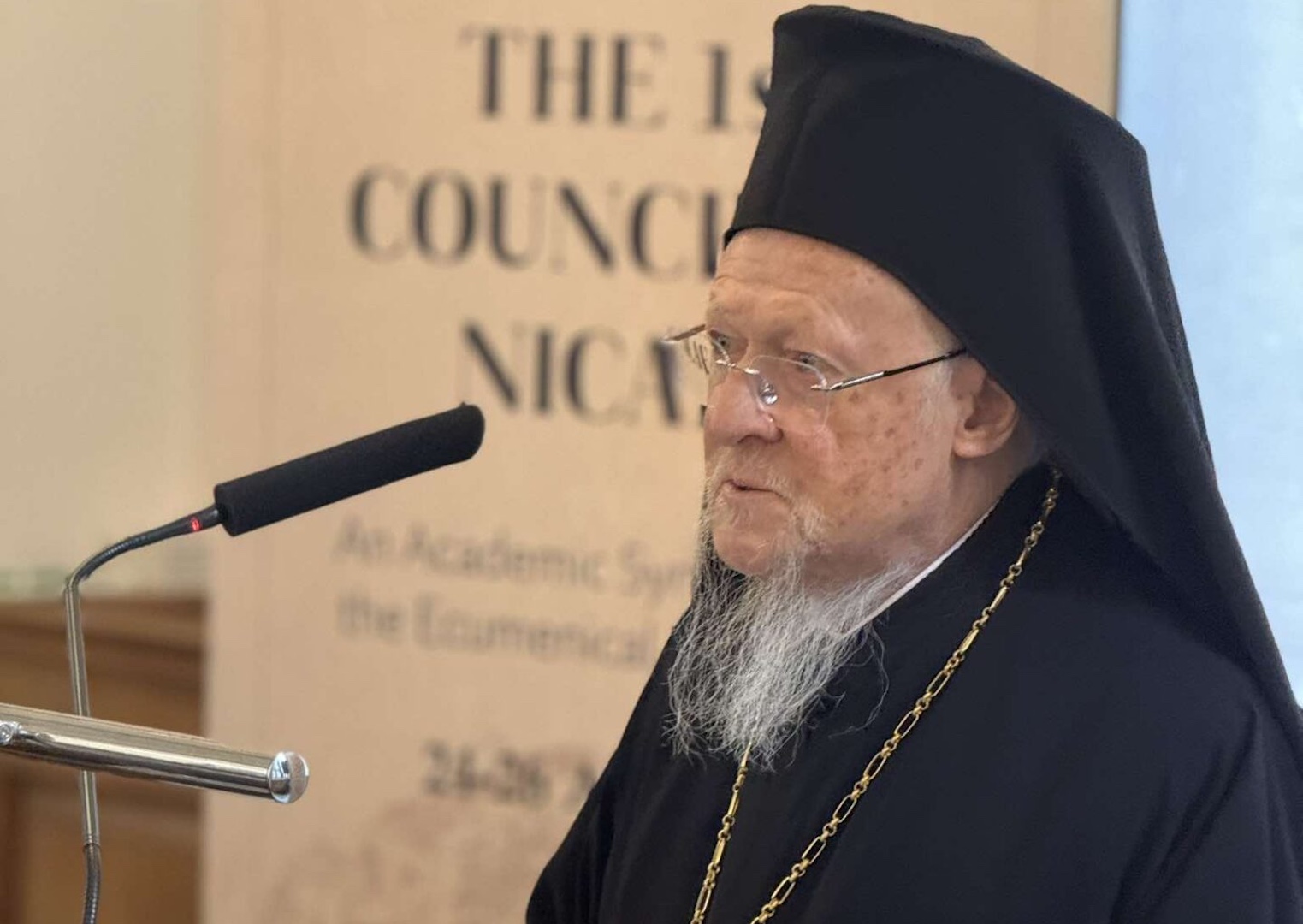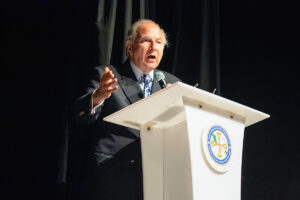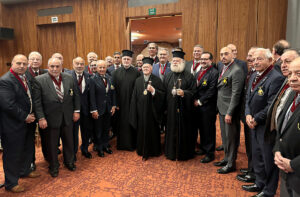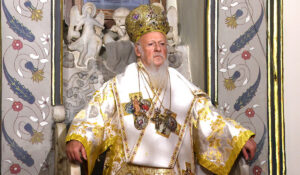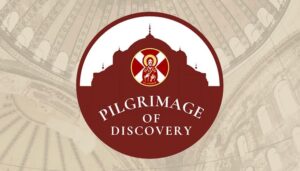On Tuesday, May 6, 2025, His All-Holiness Ecumenical Patriarch Bartholomew delivered a major address on the central importance for the contemporary world of the First Ecumenical Council, which was held in Nicaea 1700 years ago, in the year 325. His All-Holiness was the keynote speaker at an international conference of theologians and leaders of Churches of various Christian traditions, “Restarting from Nicaea: The Importance of the Incarnation in Contemporary Theology,” hosted by the Holy Metropolis of Pisidia, in cooperation with the Roman Catholic group Corpus International, in Antalya, Turkey.
In his address, the Ecumenical Patriarch called attention to the numerous ways in which the Council of Nicaea set the course for the Church throughout the centuries, “from uniformity in the date of the Holy Pascha, to liturgical and canonical customs.” He emphasized, however, that the “most marvelous outcome of this First Ecumenical Council” was “the definition of the Creed, and the solution to the question of how to understand – at least on a most minimal level of language – the relationship of our Lord Jesus Christ to His Heavenly Father. In other words, how to comprehend with our intellects – as much as is humanly possible – God as Holy Trinity.”
Accordingly, although “the Trinitarian understanding of God is very much taken for granted today,” the Ecumenical Patriarch stated the Nicene Creed is “the foundation of all the pillars upon which the Church stands.” His All-Holiness declared that “the spirit of Nicaea must once again ignite the Christian message.” He described that spirit as “the spirit of a unified and harmonious Christianity,” and stated that “it is not enough for the affirmations of the Faith to be enshrined in liturgical life and ensconced in our many books. Every generation has the responsibility to look at them anew.”
“We need,” His All-Holiness continued, “only find ways to make this declaration of the Faith relatable and relevant to the contemporary world and in contemporary ways of understanding.” The Church today, he said, must “instill and emphasize in our modern forms of theologizing the essence of Nicaea. If we may say it in this way, our theology must be ὁμοούσιος [of one essence] with that of Nicaea; for the power of the Apostolic Preaching, and the elucidation of the Teachings of the Fathers is to be found there.”
Doing this, said the Ecumenical Patriarch, was the key to ensuring the accuracy and relevance of modern preaching: “Applying this same principle – the ὁμοούσιον – upon which the entire theology of Nicaea depends, to our current interpretations will ensure that no matter the manner of expression, the basis for our expositions of the Faith will remain true.”
His All-Holiness noted the historical importance of the Nicene Creed as ensuring the unity of Christian belief across the vast expanse of the Roman Empire: “Nicaea standardizes that confession for the entire οἰκουμένη, and sets the Creed as a binding mortar to hold together a far-flung Empire.” That, he explained, was the key to the Nicene Creed’s importance today: “Although we no longer live in a world of Christian Empire, we are Christians of the far-flung reaches of geography, and more importantly, history. The seventeen hundred years since Nicaea have witnessed division and dissolution within the Christian family, such that when we speak of ‘Church,’ we all may not mean the same thing.
This is why the re-initialization of the Faith of Nicaea is so vital. It is the common ground and shared experience of virtually all Christians on planet Earth – nearly two and a half billion of us. This fact alone calls us to seek answers that hearken back to a day when we held fast to a communal understanding of our Faith.”
The Ecumenical Patriarch thus concluded that “our task is to restart from Nicaea, from the unalloyed and integrated Kerygma [message] of the Apostles and the Dogmata [teaching] of the Fathers.” He added that “we must seize upon this milestone in Christian history to help us communicate more effectively and more realistically to the People of God, wherever they may be.”
His All-Holiness emphasized that the Holy Mother Church of Constantinople must lead this effort: “The Ecumenical Patriarchate, the Church of Constantinople, the Mother Church of most of Eastern Orthodoxy, and the Primus of the remaining Four Elder Sees of the Ancient Pentarchy, has both the joy and the responsibility to lead in these efforts. This involves not only in academic setting such as this, but also in every aspect of ecumenical dialogue.”
The Archons of the Ecumenical Patriarchate, dedicated as they are to the support and defense of the Holy Mother Church of Constantinople, echo the call of His All-Holiness for the spirit of Nicaea to reanimate the Church at large, and for efforts to increase among the Christian faithful worldwide a comprehensive understanding of the importance of the Council of Nicaea.
